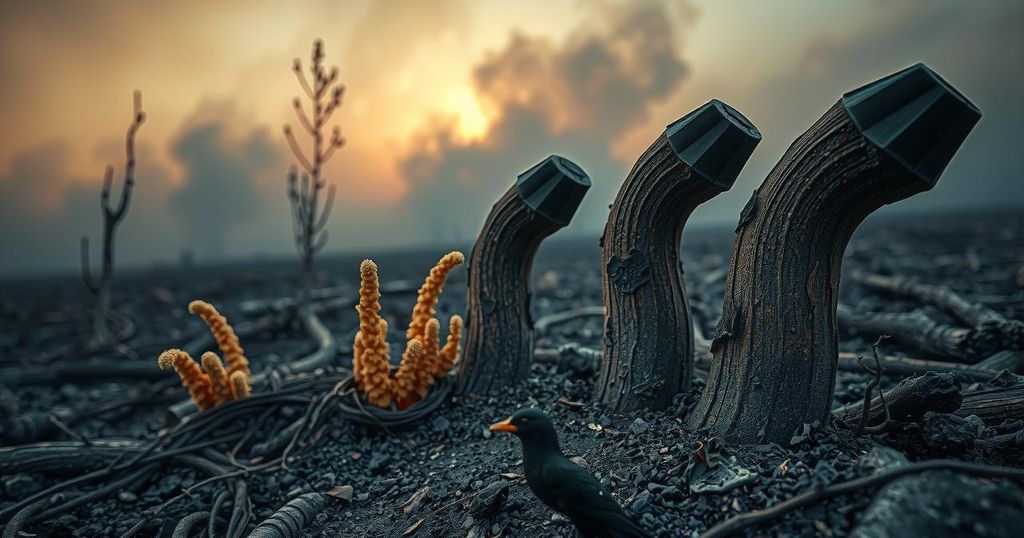Argentina’s Patagonia is facing a severe wildfire crisis, with over 35,000 hectares burned amidst significant reductions in fire management funding and increased hostilities towards Indigenous communities. President Javier Milei’s administration has cut environmental budgets sharply while prioritizing extractive industries, raising alarms about human rights and environmental protection.
The wildfire crisis in Argentina’s Patagonia has escalated, with over 35,000 hectares consumed by flames. Alarmingly, the government has chosen to reduce funding for fire management rather than prioritizing measures to protect the environment. Instead, they have intensified measures against Indigenous communities amidst the outbreak of these fires.
Wildfires have ravaged the provinces of Rio Negro and Chubut, necessitating evacuations and leading to significant destruction of homes, forests, and farmland. Contributing factors such as dry conditions, high winds, and increasing temperatures have exacerbated the situation.
President Javier Milei, who has labeled climate change as a “socialist lie,” has implemented drastic cuts to environmental budgets, including an 81% reduction of the National Fire Management System budget. This reduction in resources undermines the capability to combat the ongoing wildfires effectively.
Moreover, government authorities have adopted aggressive tactics towards Indigenous communities, conducting raids on Mapuche villages and Indigenous media. In contrast, they are prioritizing extractive industries, including mining and tourism, over environmental protection efforts.
Mauro Millán, a Mapuche organizer, remarked, “The kind of state that Milei is proposing, an eviscerated state, is not where it should be right now, putting out the fires.” His statement highlights the detrimental impact of the government’s policies on firefighting efforts.
The current wildfire crisis in Patagonia underlines the pressing challenges posed by climate change, land conflicts, and governmental policies that weaken environmental protections for Indigenous communities. As scientists indicate that rising temperatures contribute to severe fire conditions, the Argentine government continues to roll back vital regulations and funding. The crackdown on Indigenous groups, coupled with the favoring of extractive industries, raises serious concerns regarding human rights and environmental preservation. Similar trends have emerged in neighboring Chile, where land disputes have also led to significant wildfire incidents.
In summary, Argentina’s wildfire crisis reveals the urgent need for a reevaluation of governmental priorities regarding environmental protection and Indigenous rights. The disregard for climate change implications and significant budget cuts endanger both communities and the ecosystem. Effective management and advocacy for Indigenous rights are paramount for both present and future wildfire mitigation.
Original Source: www.ehn.org




